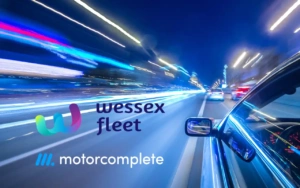SALARY sacrifice is set to remain the choice for thousands of employees wishing to move to electric cars following Chancellor Jeremy Hunt’s Autumn Statement, according to Glasgow-based leasing broker Fleet Alliance.
The Chancellor said Benefit-in-Kind (BIK) on EVs would go up from 2% to 3% in 2025/26, to 4% in 2026/27, and to 5% in the year 2027/28. This compares favourably with petrol or diesel cars which face company car tax rates routinely between 20% to 37% of the car’s list price.
Fleet Alliance, which is currently campaigning to democratise the electric car through its employee electric car salary sacrifice scheme using the hashtag #ElectricCarsAreForEveryone, says that the substantial savings enjoyed by salary sacrifice remain firmly in place following the Autumn Statement..
Andy Bruce (pictured above), CEO of Fleet Alliance commented:
The announcement by the Chancellor to keep BIK rates benign on EVs will ensure we can continue to encourage as many drivers as possible to switch to zero emission motoring, whether they are company car drivers or employees benefiting from a progressive electric car salary sacrifice scheme.
Andy Bruce, CEO of Fleet Alliance
Andy said that drivers choosing a salary sacrifice scheme could drive an electric vehicle at a far more accessible rate than if they were to lease the same car privately, thanks to tax and National Insurance reductions. While there is still benefit in kind tax to pay on the vehicle, he added, it remained at a significantly low rate to encourage the uptake of electric cars.
I think this gives the fleet sector the reassurance that the Government continues to support the green agenda, and ensures we can continue working with employers who wish to drive their ESG agenda forward. With salary sacrifice they can do that by offering electric cars to all their employees who don’t qualify for an electric company car.
The Chancellor also announced that Vehicle Excise Duty (VED) – more commonly known as road tax – would also apply to electric cars from 01 April 2025. This means that the first year VED will rise from £0 to £10, and then to the standard rate of £165 in the second year.
“While this is an additional cost, we don’t believe it’s enough to dissuade drivers from the many benefits of switching to electric,” Andy added.
Fleet Alliance is underlining the inclusivity of its electric car funding programme in a new campaign aimed at promoting the benefits of low-cost zero emission driving for all via a salary sacrifice arrangement.

Wessex Fleet chooses MotorComplete broker platform for ARs
Wessex Fleet has selected the MotorComplete broker platform to provide websites for the Wessex Appointed Representatives (ARs)

New executive appointments in the fleet and leasing broker sector
There have been a raft of new appointments in the fleet and leasing broker sector, including the appointment of Ian Jeffery at PHVC

Broker News Awards 2024 in pictures
The Broker News Awards 2024 took place at the Orrery in London’s Marylebone. Here are the pictures to remember the event

Broker of the Year 2024 winner profile: Synergy Car Leasing
Synergy Car Leasing was voted Broker of the Year 2024 by the judging panel – here’s the winner’s profile supported by Leasing.com

Broker News Awards 2024 – the winners
The Broker News Awards 2024 – supported by Fleet Procure – produced outstanding winners, with Synergy taking the Broker of the Year title

Broker News Newsletter 24 April 2024
Catch up on the latest leasing broker news in the 24 April 2024 Broker News newsletter




